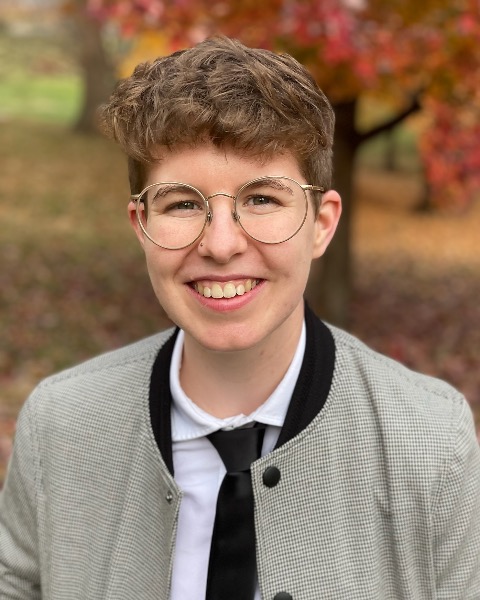Back
Immuno-engineering and Cellular Therapies
Session: Immunoengineering and Therapeutics
Precision Therapy for Lupus: Targeting Follicular Helper T Cells Using Chimeric Antigen Receptor Natural Killer Cells
Thursday, June 20, 2024
4:00 PM – 4:15 PM PT
Location: Salon 7

Nora Lakes
MD-PhD student
Cincinnati Children's Hospital
Cincinnati, Ohio, United States
Presenting Author(s)
Abstract Text: Aberrant follicular helper T (Tfh) cell responses are a core feature of autoimmune disease. Notably, Tfh cells promote the development and expansion of pathogenic autoantibodies in systemic lupus erythematosus (SLE), a chronic autoimmune condition that disproportionately impacts young Black, Asian, and Hispanic women. Patients with SLE exhibit elevated frequencies and tissue infiltration of Tfh cells, particularly during disease flares, and mouse models suggest that Tfh cells are necessary and sufficient for the development of SLE-like disease. Hence, targeted depletion of Tfh cells is a compelling yet largely unexplored therapeutic strategy to achieve SLE remission. Our lab developed a novel programmed death-ligand 1 (PD-L1) chimeric antigen receptor (CAR) that selectively targets Tfh cells based on their unique phenotypic feature – high surface expression of programmed cell death protein 1 (PD-1). At the 2023 FOCIS meeting, I presented functional experiments showing that human PD-L1 CAR natural killer (NK) cells efficiently kill Tfh cells and spare off-target leukocytes in vitro. This year, I will share findings from our latest in vivo studies evaluating the therapeutic efficacy of PD-L1 CAR-expressing lymphocytes in mouse models of SLE. We rigorously tested the capacity of our innovative Tfh-targeted cellular therapy to alleviate SLE-like disease in spontaneous genetic, inducible, and humanized mouse models. PD-L1 CAR-engineered cells are highly selective for PD-1-high Tfh in vivo and demonstrate no overt toxicity. In addition to their therapeutic potential in autoimmune disease, PD-L1 CAR NK cells offer versatile applications for targeting Tfh in contexts such as transplant rejection, lymphoma, and chronic infection.

